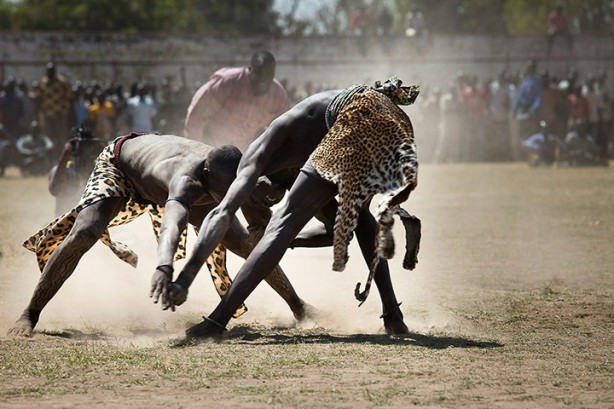THE AMAZING STORY OF ANEI DENG DE NGOOR
By Amer Mayen Dhieu, Brisbane, Australia
In most socio-historical headlines, we do find sensational stories of important people who have helped shaped social and cultural order of our time.
However, none of the recorded stories have deservingly showcased histories of our great women that are considered to be cultural icons such as Anei Deng de Ngoor, Apul-Magengdit, Commander Ageer Gum Akol, to mention but a few.
These extraordinary women, unlike some of our women in this generation, didn’t just show up and find a historic voice in a gender-conscious generation and time. Behind their fame and credits lurked great obstacles that were either cultural, political, social or economical.
Yet, these pioneers didn’t just prevailed at all odds arrayed against them but also excelled to be the most influential women whose determinations and courage and stories can be used as a model to inspire today women to pursue their dreams.
Unfortunately, many remarkable stories about South Sudanese women went down the history unrecorded. Hardly any of our books or newspapers has published the untold stories of this unprecedented group of women from different places in South Sudan.
No one has adequately recorded the amazing stories of our great women whose combined legacies are a testament to the feminist spirit among our people. Their pioneering, courageous works broke through the male-imposed gender chained that had, and continue to, deny our sisters and mothers their rightful and God-given roles in the society.
Though our people are yet to recognise the sensational contributions of these revolutionary women, there is still hope out there that our today opinion writers, book authors and historians are gathering stories that will be remembered and debated later by future generations.
Had we this group of gender-conscious writers in the past, I believe the extraordinary story of Anei Deng de Ngoor would have long been a guiding post for young South Sudanese feminists of today.
I was six years old when I heard about Madam Anei Deng de Ngoor from Twic East, Nyuak Payam, Ayual clan, Roordior section of Paan-Kueer. I can only remember her coming to my house to pay visit to my dad. Someday it could be a mere visit and someday it can be to discuss some administrative cases at a time when my dad was Nyuak’s chief.
Very often, Madam Anei visited our house but never sat near my mom. She always proceeded to dad’s room and would discuss, and discuss, till noontime with some other local chiefs from Twic East.
One afternoon I ask my mom: “Who is that woman and why does she always sit where men are?” Mom said her name is Anei Deng de Ngoor, a representative of certain section in Ayual. “She is not a woman, she is a man,” mom whispered.
I was lost for word. I didn’t completely understand what the heck she meant. Physically Madam Anei was a woman, she was wearing skirt and blouse, sometimes a dress. I stared into mom’s eyes looking for more information.
After few minutes of deafening silence, mom started again and said, “menthdi (my child), it is rumoured that Madam Anei didn’t have any brother in her family and for her father’s name to reign she decided not to get marry off but to marry a wife for herself instead.”
It was, however, today that I learnt that Madam Anei have brothers. She was married but for some reason her marriage didn’t work (or didn’t manage to have children) and therefore she had to come back to her family and started a brand new life with new thinking full of determination that ultimately helped her have wives and children of her own.
When Madam Anei returned to her parents, she decided to enter into business to earn some money and livestock so she can marry her own wives and have children of her own. She was also given a privileged place by her brothers to be one of them. That is, she was entitled to be given a cow from any of her sister or nieces’ marriage.
In business, Madam Anei succeeded remarkably and became one of the richest icons in her clan.
Right now she got five wives with a great number of children that called her daddy. Madam Anei’s brothers are the sperm donors, but Madam Anei herself is the real father. She carries out all the fatherly responsibilities and duties.
Madam Anei gave up her romance and sexual needs. She got no husband but wives that she barely kiss, hug or touch, yet she remains faithful to them and maintains her role as a father and husband to her wives and kids.
Madam Anei’s decision to have wives was not inspired by western culture of gay rights or lesbianism since at a time the Dinka people didn’t even know what that concept was. It was engendered by a pure selfless love and honour to her father’s name and herself. Without such sacrifices, Madam Anei’s name would have been extinct by now in her family lineage.
Rather than thinking too much about the biological side of the story, we should all be humbled and inspired by her selfless love to her father.
Nonetheless, the most important case in point is that, Madam Anei’s story, like other untold stories of women of her kind, is the first standout story among other extraordinary stories that would surely serve as inspiration for generation of women to come.
It does not only educate us about how to fix a broken glass but also how to look for other potentials when the old glass is completely broken.
Do we still think that our women are not great? Do we still think that they have not contributed and sacrificed so much in family and clan, and at the state and national levels? If you think that they are great, and have contributed their fair share in building our society, then give them their rights.
Because Madam Anei’s choice of life was duly supported and appreciated by the male members of her clan, she performed outstandingly well. Our women need that support and recognition to be vital members of our communities.






